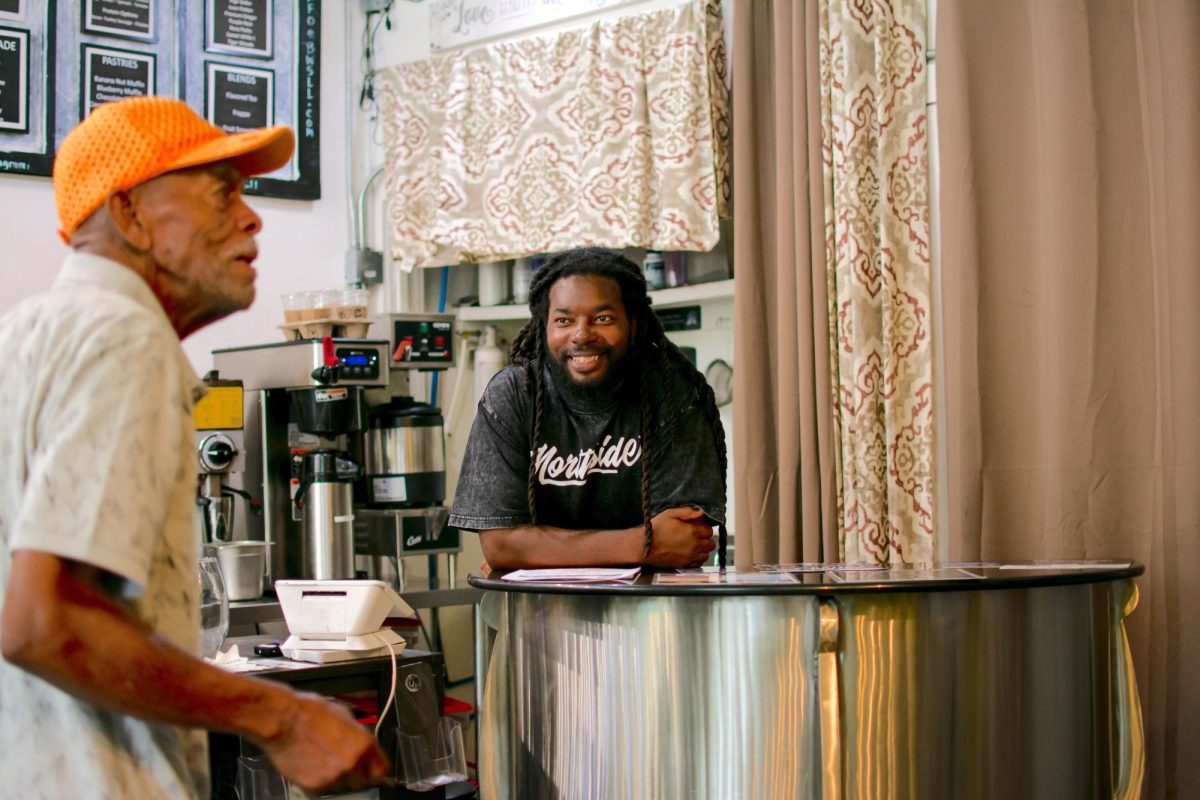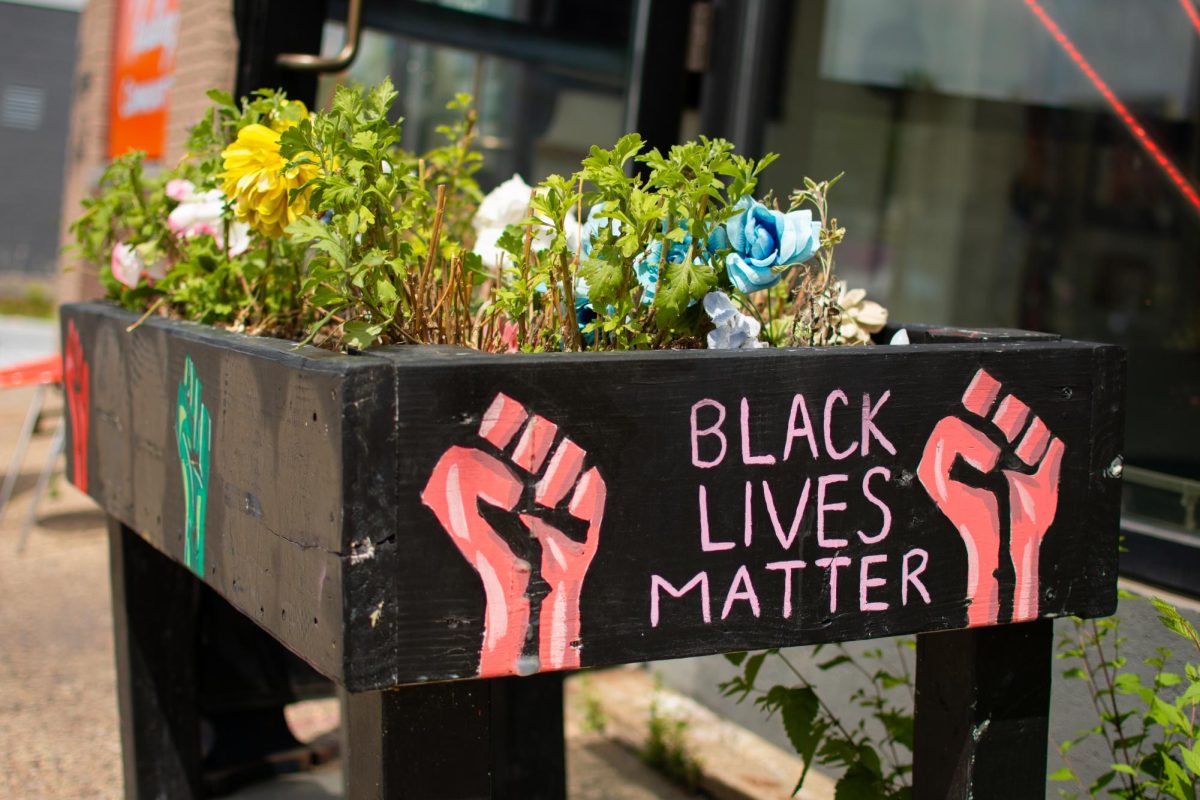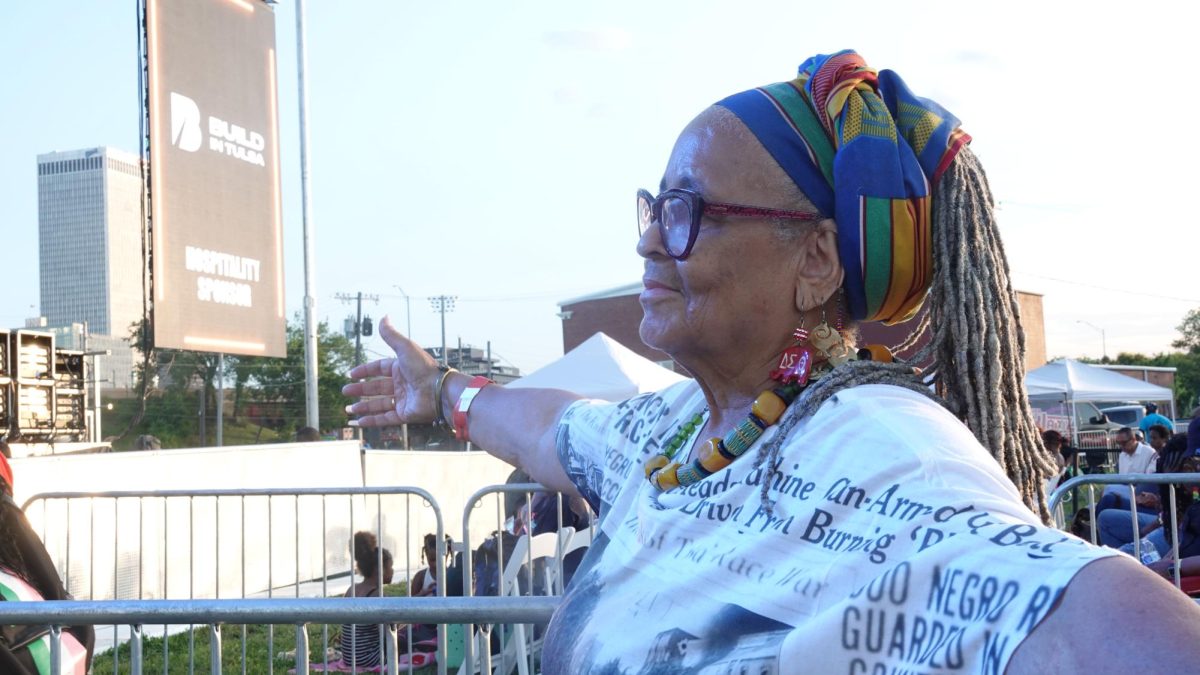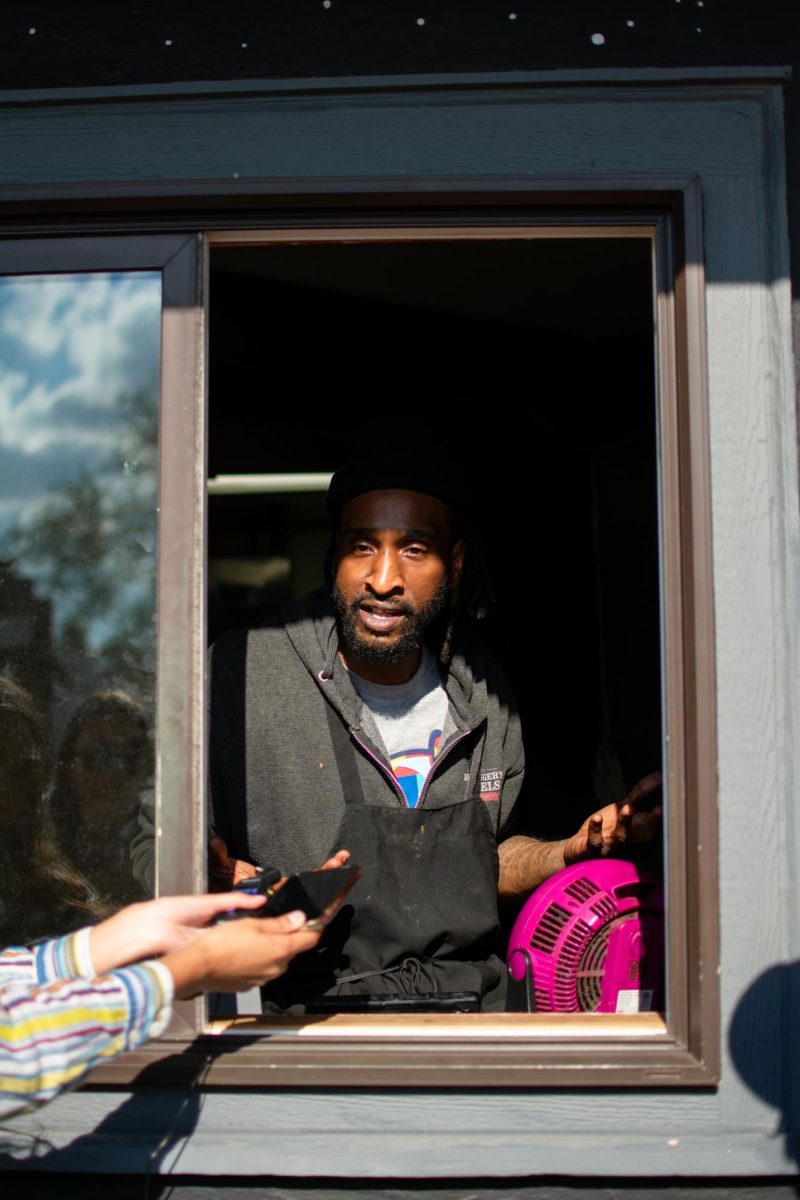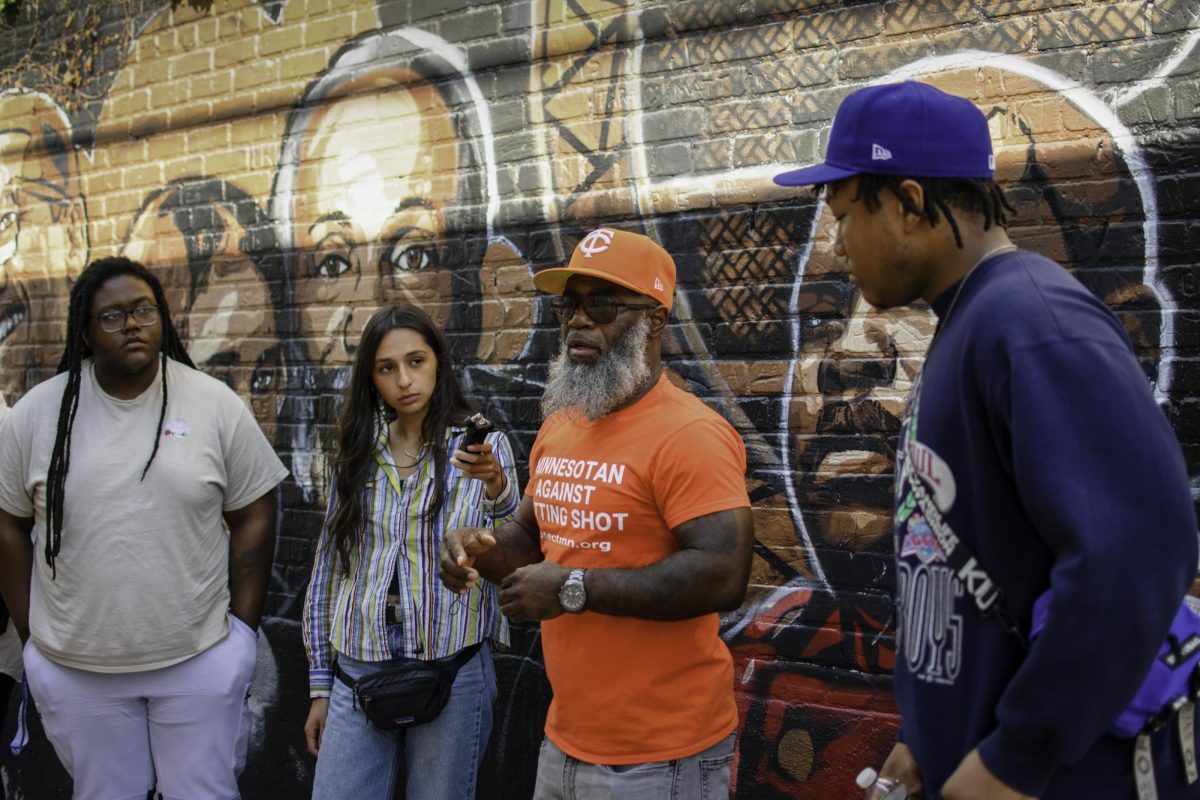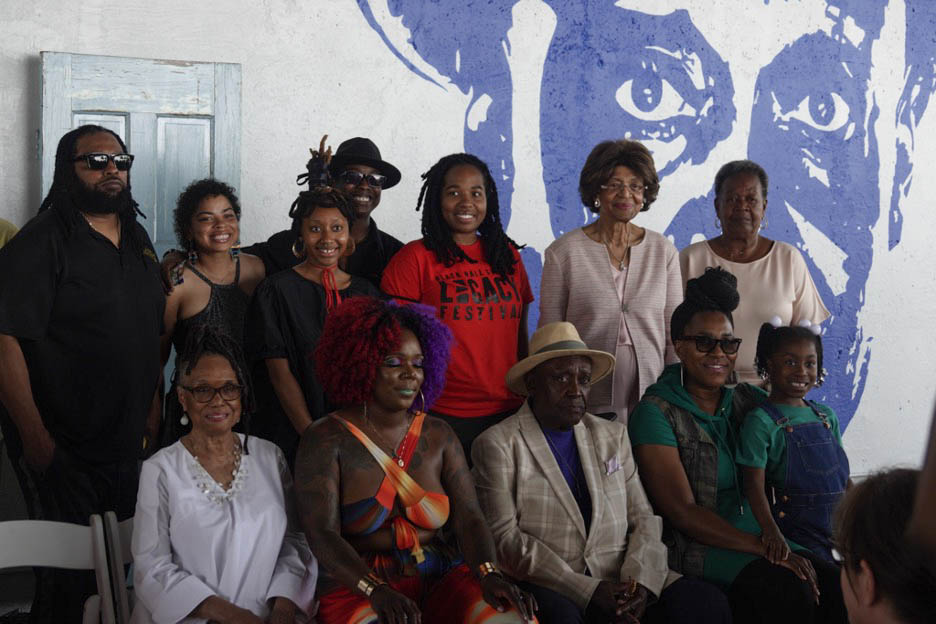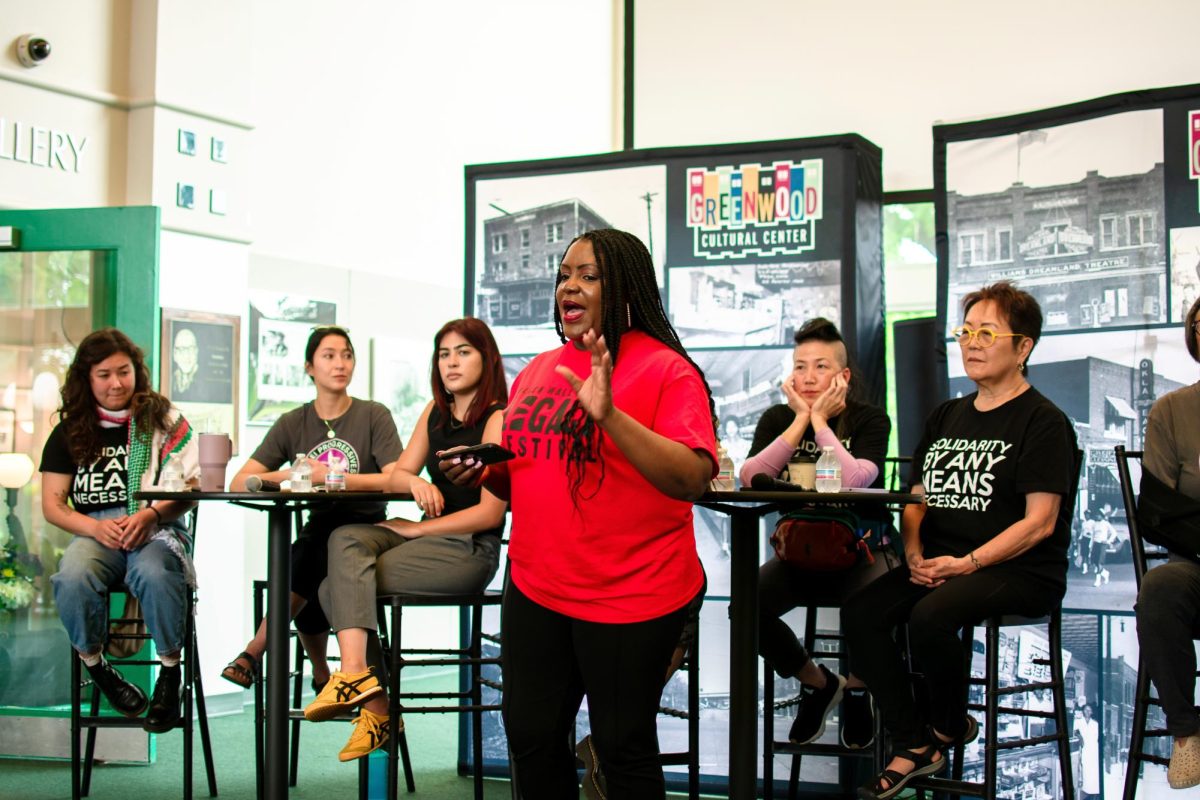TULSA, OKLAHOMA. Over a century since the Tulsa Race Massacre in the city’s historic Greenwood district, descendants of survivors detailed their understanding of the legacy and the importance of teaching the true history of Black people in the United States.
Though the residents endured countless years of hardships in Greenwood, the descendants remained strong through community resilience and making the best of what they had. Despite challenges, the spirit of Greenwood stays alive through the sense of community in the area and Black-owned businesses aimed at keeping the history alive both orally and visually.
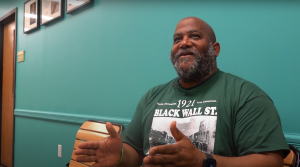
Cleo Harris, a direct descendant of the massacre and owner of Black Wall Street Tees & Souvenirs, discussed how he first learned about the Tulsa Race Massacre when he was a kid.
“An old man came out from the woods and stopped us and said ‘do you guys know you’re on holy ground,” Harris said. “We said ‘no what’s that?’ He said a lot of people died, a lot of people were killed, houses burned down, and so he began to tell us the story of the race massacre.”
Black business owners have been especially resilient in the face of challenges with the area being encroached by other corporations like the OSU-Tulsa campus.
“You have to be really strong because, even now, (Black people) are being pushed out of Greenwood,” Harris said. “You have OSU campus on Greenwood. It’s things like that that we don’t wanna deal with on both sides.”
Harris credited people like Ralph McIntosh, former Greenwood chamber president; former state Rep. Don Ross; historian Princetta Newman and oral historian and author Eddie Faye Gates as the reason he’s able to have his business platform.
“There are a lot of people who made it possible for me to be on the platform that I’m on now, to where now the whole world knows about the 1921 race massacre,” Harris said.
In light of House Bill 1775 discouraging certain lessons about race, Harris discussed the state of teaching the history of the Tulsa Race Massacre and his feelings about the issue.
“There is confusion and it’s coming from white politicians who don’t want this story to go into the schools,” Harris said. “They don’t wanna teach the true African American history, who really built this country.”
Harris discussed his grievances with people coming to Greenwood for entertainment or amusement, specifically groups of white people coming to see where businesses were or to look at plaques on the ground.
“Not once will you see a large group of them come into the stores and patronize them,” Harris said. “That tells you everything, you’re just down here out of curiosity.”
Nehemiah Frank, owner and founder of the Black Wall Street Times, also has a distinct memory of when he learned about the Tulsa Race Massacre. Frank, himself a descendant of the massacre, said a lot of elders in the community kept a ‘tight lip’ regarding what happened in 1921.
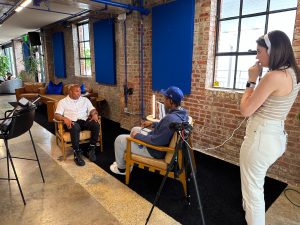
“I briefly remember when I was a kid sitting in my grandfather’s living room on the floor with my other cousins and him speaking about a large fire that had taken place in the community and everything burned down,” Frank said. “That was the closest I had heard about what happened.”
Frank touched on the change in the awareness of the Tulsa Race Massacre nowadays compared to how it used to be in the community. Unlike most other Black communities in the 1920s, Greenwood’s economy thrived even through the reign of Jim Crow Laws.
“Everywhere I go I always hear about Black Wall Street,” Frank said. “We have such a rich history of resilience and black excellence that Jim Crow couldn’t even keep in the shadows.”
“The ability to continue to thrive and to rise no matter what’s coming at you,” Frank said. “I am going to hold on to what’s positive and I’m going to continue to strive towards my greatest ambition.”
In 2023, Sen. Cory Booker (D-NJ) and Sen. James Lankford (R-OK) proposed to designate the site of the Tulsa Race Massacre in north Tulsa a national monument. Frank also talked about his hopes for a possible national monument on Greenwood that would truly help the space and commemorate the legacy of the Tulsa Race Massacre.
“If you think about the economic impact that comes from having a national monument dedicated to black wall street, the dollars are gonna come and they’re going to protect the businesses in this historic district,” Frank said. “We just have to be super intentional about protecting the equity.”
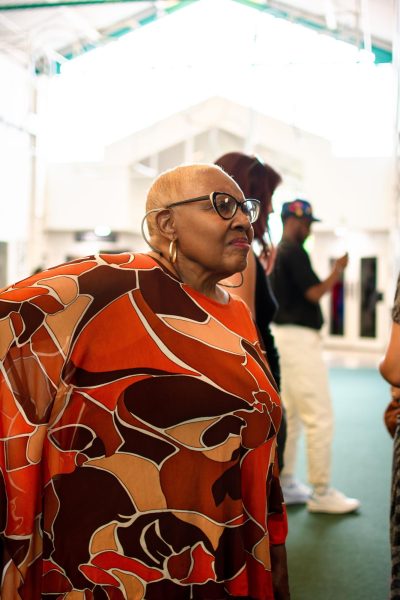
Malee Craft, a descendant of the Tulsa Race Massacre who grew up in Oklahoma City, also never learned about the massacre from her community growing up.
“Many of the descendents and people in general never heard about Greenwood never, never, never. I grew up in Oklahoma City, I went to Oklahoma City Public Schools, and graduated high school there. Never mentioned a word.” Craft said.
Her school was not the only place that kept quiet about the massacre, her family also would not talk about it growing up.
“My father, family members, they didn’t talk about at all, never been mentioned. So we just didn’t know anything about it.” Craft said.
During Black Wall Street Legacy Festival, Craft attended a panel discussion regarding reparations for African American reparations. She expressed the emotions she felt while being in the cultural center building, seeing the work being put in for change.
“It’s overwhelming, being in the cultural center, looking at the people who came before me, looking at the neighborhood going around and still there are vacant lots and just thinking about wow, what it could have looked like, what it didn’t look like,” Craft said. “I’m very proud to be a part of this. And I’m very proud of the people who are working, trying to preserve Greenwood. They’re trying to share the knowledge about what happened, and it makes me feel very proud.”
No direct reparations have been given to victims and descendants of the Tulsa Race Massacre. Craft spoke on her hopes for future reparations for the descendants.
“I believe that the descendants should have an opportunity to those who want to go to college and get further education, because that was one of the main things that my dad, my aunt Vi, who is still living.” Craft said. “Those two in particular that I know did not really get the education they deserved.”
Craft believes sharing the history of the Tulsa Race Massacre is vital to keeping the history alive, and should be continued to be shared through generations to come.
“I think we should never crush history, we need to share,” Craft said.
Nehemiah Frank on when he fully understood the 1921 Tulsa Race Massacre while living in Chicago as a college student. Frank would return to the Greenwood District as a teacher. Eventually, he created the Black Wall Street Times. VIDEO: Cameron Williams and Madeline Cantrell.
Oklahoma Representative Regina Goodwin speaks the names of the few remaining 1921 Tulsa Race Massacre survivors. Then she reminds the crowd that legacy takes work. VIDEO: Madeline Cantrell
Return to the Voices of Resilience homepage.

